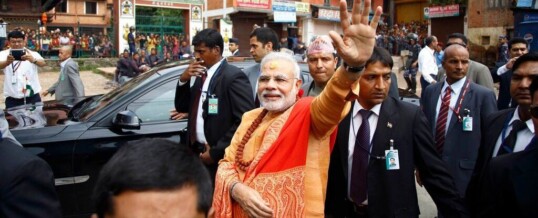
McLeod Group guest blog by Nigel Martin, December 5, 2022
India will host the G20 meeting for the first time in September 2023. One of the annual summit’s activities, dating back to a Canadian-inspired initiative in 2010, is an official meeting between G20 officials and civil society organizations (CSOs) from within and outside of G20 countries.
However, unlike in previous meetings where civil society selected its own representatives and chair, the Indian government has determined which CSOs from India will participate in the G20 dialogue and has already chosen participants based on Prime Minister Narendra Modi’s domestic political and religious agenda.
The G20, like the G7, is a rather informal meeting of heads of state and of government. Each leader is closely accompanied by a sherpa, who may or may not be a governmental official, and whom the leader personally selects. There is no permanent G20 office or secretariat between meetings. In reality, the G20 is more like a private club than an institutionalized multilateral body. Previous G20 meetings and pre-summit dialogues influence what will be discussed. However, the host leader sets the final agenda.
Unlike at the UN or other official multilateral bodies, any agreement reached by G20 members is informal and lacks any official accountability to the broader world community. Nevertheless, the G20 has a significant impact on global policies. Its members have been selected precisely because of their global economic and political influence, as the member states include five eighths of the world’s population and an even greater proportion of global economic activity. However, the less developed non-participating countries are well aware of this club’s undue international influence, as are those citizens engaged in influencing global issues such as climate change, systemic inequality and pandemics.
It was with this backdrop that the first-ever formal dialogue between civil society participants and G20 organizers was held in Ottawa in 2010. It was modelled after an earlier Canadian initiative which, as the host of the 2002 G8 meeting, introduced an official dialogue between civil society participants and G8 members. In both cases, the proposal for dialogue came from the Forum for Democratic Global Governance (FIM), a Southern-led CSO based in Montreal.
For the CSOs, the major challenge in preparation for both the G8/G7 and G20 meetings was how best to select spokespeople from civil society. FIM was determined to ensure that the majority of civil society participants came directly from the developing world, since G7 and G20 agreements inevitably have a direct impact on global poverty and oppression, and can, all too easily, exacerbate existing problems.
In 2013, in the lead up to the G20 meeting in Russia, CSO representatives from the G20 countries met to create the Civil 20 (C20) as an Official Engagement Group of the G20. At this year’s G20 meeting in Bali, the C20 issued a strong statement underscoring the need for C20 independence, including the autonomy of the C20 to select its own chair.
The lack of an agreed process on the selection of CSO participants is now being cleverly exploited by Modi. In a country where minority Muslims increasingly suffer from systemic oppression and where a vibrant and progressive CSO community is fighting a painful and possibly losing battle against the loss of democratic freedoms for all Indian citizens, Modi has selected several hard-core Hindu-based organizations to “represent” Indian civil society at the upcoming G20 meetings. He also appointed Hindu spiritual leader Mata Amritanandamayi Devi to chair the CSO group.
This decision makes a mockery of the original intent, which was to strengthen participatory democracy within the G7 and G20 format through the inclusion of forthright dialogue between citizens and governmental officials. Since neither the G7 nor the G20 members had any direct accountability to their own citizens, let alone to citizens of impoverished communities, and since non-elected government spokespeople also lack public accountability, FIM felt that it was essential to bring the highest quality civil society voices to the table.
No fully representative global CSO body exists. The larger Northern-based international CSOs have often used their considerable influence to displace independent Southern voices. Nonetheless, the establishment of the C20 in 2013, however imperfect, reflects the growing recognition by G20 leaders of the value of direct citizen engagement in global issues, a major step forward in improving the quality of governance at the international level.
The Canadian government was the first to foresee the value of including civil society participation in both the G8 and subsequently the G20 meetings. Its vision is now under serious threat from the Indian hosts of the next G20 summit. It is essential that Prime Minister Justin Trudeau help sustain and strengthen this initiative. Whatever influence Canada still has on the international scene must be brought to bear diplomatically, but vigorously.
The full gamut of Indian CSOs must select their own participants for the 2023 G20 meetings and, of all G20 countries, Canada is the best placed to support them.
Nigel Martin was the co-founder and CEO of the Forum for Democratic Global Governance (FIM) from 1998 to 2012. Photo: Navesh Chitrakar/Reuters.
